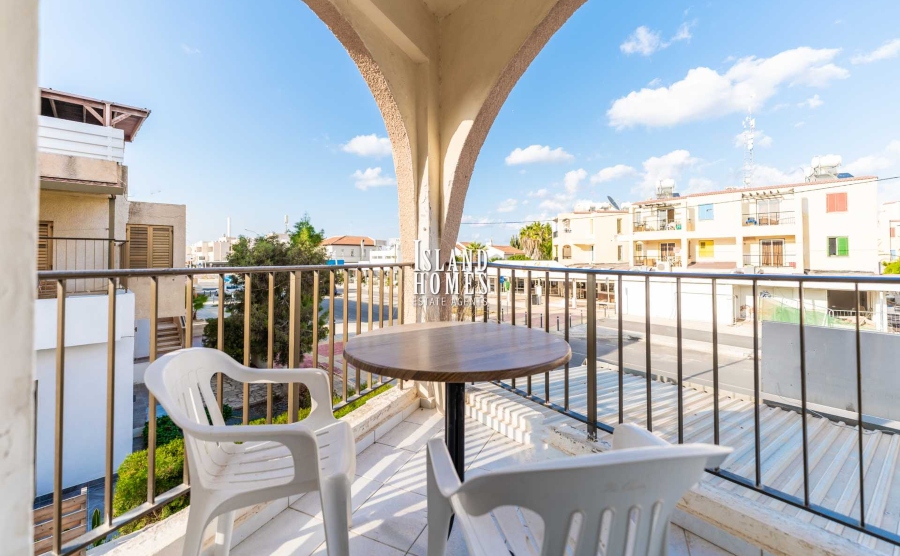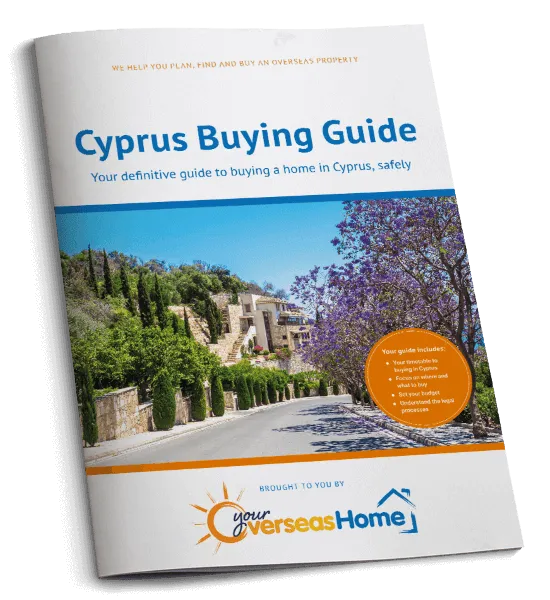There is nothing stopping you buying property in Cyprus as a non-EU buyer. It’s when you want to stay to live or work there, that it can become a little confusing. The Cypriot government has systems in place to allow you to reside in the country and there’s a new ruling you should be aware of.
In instances like this, which are super common, the Cypriot government has systems in place to allow you to reside in the country.
The permanent residency permit
This permit can be issued to non-EU applicants but to qualify, they must meet one of the following investment criteria. The applicant must make a monetary investment of at least €300,000 in one of the following categories:
- House or apartment (not a resale)
- Real estate (excluding houses & apartments) – this could include a combination of offices, commercial lots, hotels etc.
- Share capital of a Cypriot company that is active in Cyprus, with staff there – this can be a new or existing registered business with a physical presence in Cyprus and at least 5 employees
- Shares of a Cyprus Investment Organisation for Collective Investments
The ruling for said permit is strict. You must have proof that the money or investment came from either your account or your spouse’s. This will have to be transferred to the vendor’s Cyprus bank account.

A woman holds a small Cyprus flag out a car window in Cyprus
New residency ruling
In addition to your application, new ruling as of May 2nd, 2023, states that a non-EU residence applicant must also prove they have a minimum of €50,000 income per year.
This increase of the insured annual income reflects a 66% increase from the previously required €30,000. It is part of the Cypriot government’s efforts to comply with anti-money laundering directives.
These changes were announced on Friday 27th April by the Interior Ministry in Cyprus following a surge in emigration demand from retirees in the UK, Israel and Germany.
To straighten things out and get our heads around the new ruling, we spoke to Eleni Philippou, a Legal partner at Polycarpos Philippou, a boutique law firm based in Paphos, Cyprus.

Law firms like Polycarpos Philippou can help you with residency applications
What do you think of the new residency rules in Cyprus?
Eleni: As a professional team, we acknowledge the stricter requirements that have come into effect with this new ruling, and we understand that these changes may present challenges for our clients. However, our team is more than capable and willing to provide expert guidance and support in navigating these new requirements.
What’s the initiative behind the choice to raise residence permits?
E: The initiative behind the recent changes to the Immigration Permits to non-EU national applicants in cases of investments is to demonstrate stricter requirements for granting permanent residency, to correct any problems of the system, to monitor compliance with these requirements, and consequently protect the integrity of the regulations, thus safeguarding its continuity and securing the reputation of the country.

The balcony view from a Famagusta apartment
Does the €50,000 annual requirement apply to individuals or households?
E: Applicants must have a personal insured annual income of €50,000 or more, which increases by €15,000 for their spouse and €10,000 for each minor child of the applicant and/or his spouse. The income of the applicant’s spouse may also be taken into account in the calculation of the total income.
How does one prove they have these funds annually if it’s from a pension?
E: The annual income must be proven through the applicant’s tax return from the country in which the applicant is tax resident.

The sunny weather is a big plus for Brits of a retirement in Cyprus!
Is it still possible to retire to Cyprus with a British pension?
E: Yes. According to the latest review of Immigration Permits to non-EU applicants, in cases of investments in Cyprus, their annual income may be derived from wages, pensions, dividends on shares, interest on deposits, rents, etc. coming from abroad, which will need to be proven through the applicant’s tax return from the country in which the applicant is tax resident.
What other residency options are there for non-EU citizens wanting to live in Cyprus?
E: Our team will be happy to provide legal services for the below residency permits for non-EU citizens in Cyprus:
1. Cyprus temporary residence permit (also known as Pink Slip), which allows to non-EU citizens to extend their stay in Cyprus for more than 3 months. It is typically valid for 1 year and can be renewed annually up to 4 years; and
2. Category F (also known as slow track Permanent Residence Permit), which allows to non-EU citizens who have a guaranteed annual income, that is adequate to provide them with a comfortable living in Cyprus, to apply and receive Immigration Permit.
Find homes in Cyprus via our property portal.
And finally, how can Polycarpos Philippou help non-EU buyers with residency applications?
E: Our immigration team is ready to advise you and answer any questions you may have regarding the residency applications, and prepare the necessary applications. Our team will guide you throughout the whole process, from the initial purchase of the property, the preparation and submission of the immigration permit applications, collection of the PR cards, and attending any other related task.










